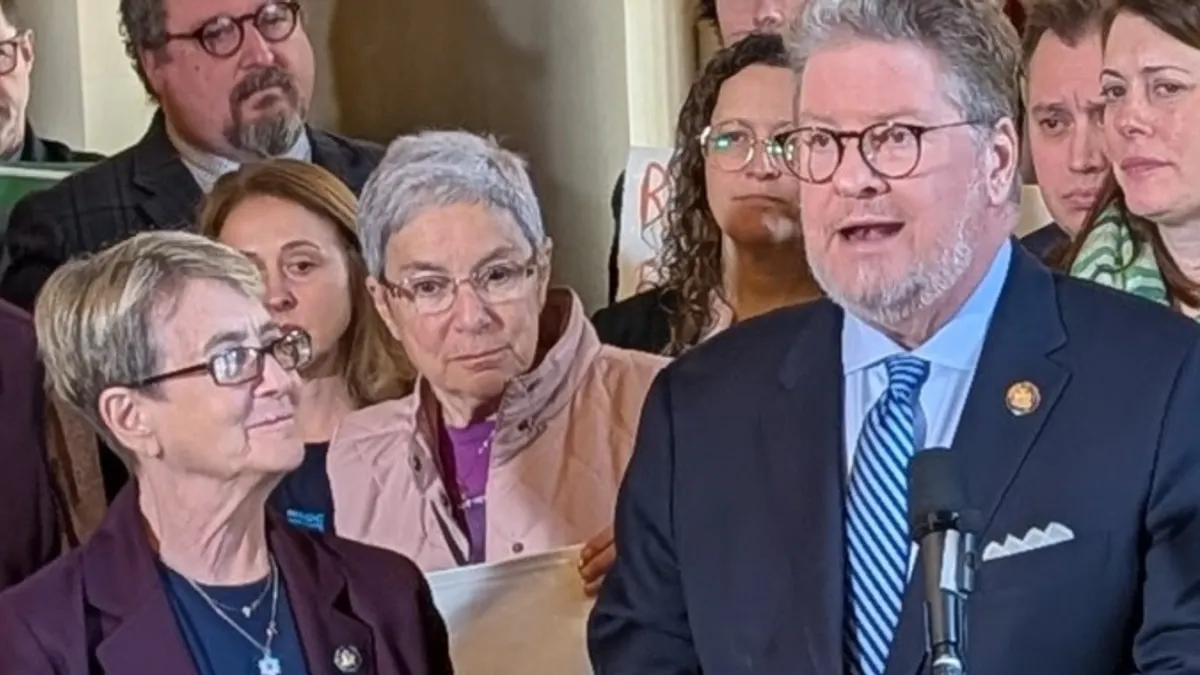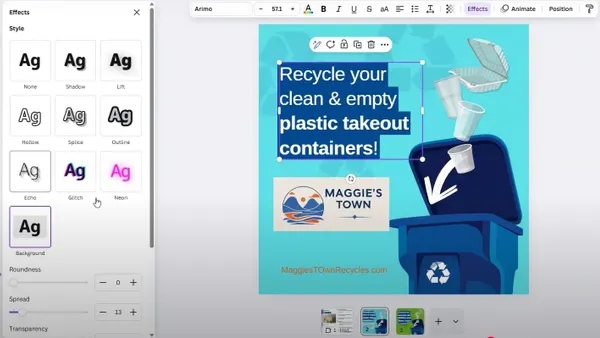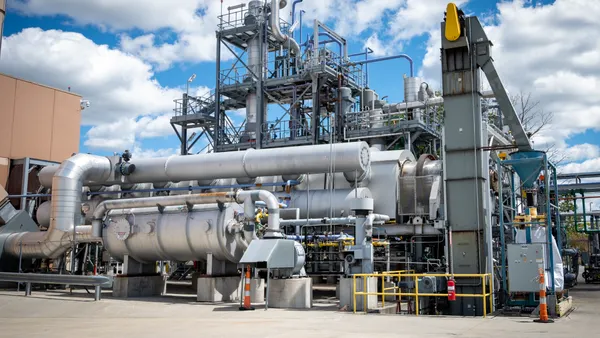The New York state legislature did not pass a contentious extended producer responsibility for packaging bill as its work wrapped up this week. The legislature’s formal session came to a close in the wee hours of Wednesday without the Assembly bringing the bill to a vote.
This is the second time in as many years that the New York Senate passed the bill but the Assembly didn’t take a vote on it.
The abrupt end to the state legislative session stalls supporters’ bid for a packaging EPR program this year, but lawmakers say it will likely come up again next year. It’s already been an eventful year for packaging EPR laws, as Maryland and Washington became the sixth and seventh states to adopt such policies in May.
The Packaging Reduction and Recycling Infrastructure Act, a bill sponsored by Democratic state Sen. Pete Harckham, passed May 28. Along with creating an EPR program for most packaging materials, the bill also set specific recycling or reuse rates for plastic packaging of at least 25% by 2030 and 75% by 2052. For certain non-plastic packaging, rates would be 35% by 2030 and 50% by 2037.
The bill would have also restricted the state from counting chemical recycling technologies as recycling and called for phasing out PFAS and certain other chemicals from packaging.
Beyond Plastics and the New York League of Conservation Voters were among the bill’s lead supporters. The groups said the bill had provisions specifically to advance waste reduction goals and would target toxic chemicals in packaging.
“While President Trump is launching a full-on assault on the environment, the New York state Assembly sided with the multibillion dollar companies pumping toxic chemicals and microplastics into our environment and our bodies,” said Beyond Plastics President Judith Enck in a statement Wednesday. “It’s deeply disappointing that we’re in this position again.”
Conservation nonprofit Oceana echoed this. In a statement, Gail Tierney, Oceana’s New York field representative, called for renewed action by New York legislators next year to “stop plastic pollution at the source.”
Groups had also highlighted the bill’s aim to provide funding for recycling infrastructure and set specific packaging reduction goals meant to hold brands responsible for making more environmentally friendly design choices.
Other supporters included the city of New York, municipalities like Albany and Rochester, and several faith-based groups.
Yet the bill faced fierce opposition. Packaging groups, including Ameripen, the Can Manufacturers Institute, the Flexible Packaging Association, the Biodegradable Products Institute, the Plastics Industry Association and the Carton Council, instead threw their support behind a competing EPR bill they said was more realistic to implement, but that bill did not move forward this year.
The Flexible Packaging Association said it has for years provided feedback to New York lawmakers that could bring proposed EPR legislation in line with “best practices we have helped to shape in other states that have already enacted and are implementing related laws.”
“The proposed legislation that failed this week in Albany did not take that approach,” said Dan Felton, FPA’s president and CEO, in an emailed statement Wednesday.
“FPA is pleased that many legislators within the New York State Legislature recognized this, and we look forward to working with them and other stakeholders in the future to shape programs and outcomes in the state that will create a more circular economy for flexible packaging while at the same time recognizing its value to consumers and the economy,” Felton continued.
Ameripen Executive Director Lynn Dyer also weighed in. “While legislation did not advance this session, there remains strong interest in building a data-driven, balanced approach that works for both consumers and industry,” she said in an emailed statement.
Petrochemical trade groups such as the American Chemistry Council and the Plastics Industry Association also opposed Harckham’s bill, saying it would cost too much and impose burdensome regulations.
New York Focus reported that groups including ACC have spent thousands of dollars on attack ads and lobbying to combat the bill.
Meanwhile, in neighboring New Jersey, business interests are pushing for a recycling needs assessment bill. The broader Packaging and Paper Product Stewardship Act is also in play.
Editor’s note: This story has been updated with additional comments from organizations.













